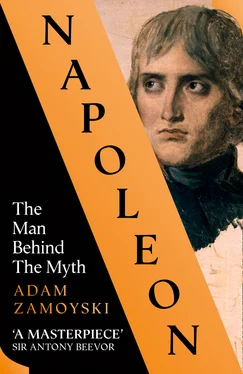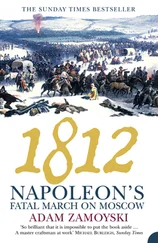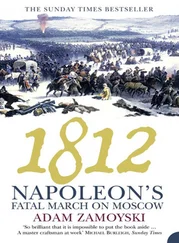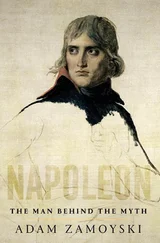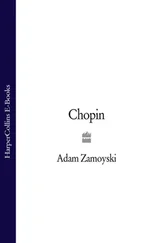According to des Mazis, ‘he groaned at the frivolity of the other pupils’, and disapproved of their ‘depravities’, going so far as to say the school authorities should do more to ‘preserve them from corruption’. This was not driven by religious feelings: he had taken his first Holy Communion at Brienne and was confirmed at the École Militaire, and while he went through the motions, never rebelling against the obligation to hear mass every day, he showed no religious zeal. It probably had more to do with his own awkwardness, which made him dismiss sex as something silly and embarrassing. He later admitted that puberty had made him ‘morose’. This was exacerbated by the behaviour of his friend Laugier de Bellecour, who had found some like-minded young gentlemen at the École Militaire and flaunted his homosexuality. Napoleone admonished him on the subject and declared that they could not remain friends unless Laugier reformed, as he could not countenance such immoral behaviour. When Laugier teased him for a prig he lost his temper and attacked him physically. Napoleone later expressed regret, and often spoke of his former friend ‘with sincere affection’. But a prig he remained.30
In September 1785 he sat the exam to be admitted into the artillery, and passed forty-second out of fifty-eight candidates. All the others had spent two or in some cases four years longer than him preparing for it, so it was not a bad showing. He was posted second lieutenant to the prestigious regiment of La Fère, stationed at Valence. He quickly put together his new uniform, which consisted of a blue coat with red facings and lining, blue waistcoat, red piping and one epaulette. He was so proud of it that he could not resist showing it off to the Permons and other Corsicans in Paris, as he was now allowed out of the school building.31
Des Mazis had been posted to the same regiment, and on 30 October 1785 the two left Paris together. They took a coach as far as Chalon-sur-Saône, where they transferred to the coche d’eau for the rest of the journey to Lyon, and continued by post-boat down the Rhône to Valence. It was the first time the sixteen-year-old Napoleone had been unsupervised, and at one point he exclaimed, ‘At last, I am free!’ and ran around gesticulating wildly.32
Valence was a medieval town of tortuous muddy streets dominated by a citadel built to guard the valley of the Rhône and surrounded by fortifications designed by the celebrated engineer Vauban. It had a population of some 5,000, a significant portion of which was accounted for by its fourteen convents, abbeys and priories. Napoleone arrived on 3 November 1785 and took lodgings above a café belonging to Claudine-Marie Bou, a merry and cultivated forty-year-old spinster who washed his linen and looked after his needs. He messed with his fellow officers at the Auberge des Trois Pigeons nearby.1
Second Lieutenant Napolionne de Buonaparte, as he was listed, was placed in command of a company of bombardiers manning mortars and howitzers. He had never handled a piece of ordnance before, and now acquainted himself with the practical aspects of gunnery during frequent exercises on a training ground outside the town. He also had to familiarise himself with the works of the founders of modern French artillery, Generals Gribeauval and Guibert, take more advanced courses in mathematics, trigonometry and geography, and learn how to draw maps and plans.
The regiment of La Fère was one of the most professional in the French army. Its officers were a close-knit family with none of the snobbishness Napoleone had encountered up till now. His messmates included des Mazis and another friend from Brienne, Belly de Bussy, who had joined the regiment a little earlier, and two new ones who were to have distinguished careers, Jean-Ambroise de Lariboisière and Jean-Joseph Sorbier. Napoleone’s company commander was a kindly man who befriended him and invited him to stay at his country house.2
The officers of the regiment were welcomed by the local gentry, and Napoleone took dancing lessons to enable him to participate in social gatherings (he remained a graceless dancer). He was befriended by two English ladies who lived nearby, and was a frequent guest at the château of a Madame du Colombier a dozen kilometres outside the town. He flirted with her daughter Caroline, whom he would describe as an ‘ amie de coeur ’. ‘Nothing could have been more innocent,’ he recalled: they would arrange secret meetings during which ‘our greatest delight was to eat cherries together’. He was not yet seventeen, and had spent the past eight years cloistered in all-male institutions, so his first emotional stirrings were confused. There is some evidence that he had tender relations with another young woman, a Miss Lauberie de Saint-Germain, but these probably did not amount to much either. ‘He was of a moral purity very rare among young men,’ recalled des Mazis, adding that Napoleone could not conceive how anyone could allow themselves to be dominated by feelings for a woman.3
Napoleone was able to nourish his mind as well as his heart, as he was a welcome guest at the house of Monseigneur de Tardivon, abbot of the abbey of Saint-Ruf, to whom Bishop Marbeuf had given him a letter of introduction. Tardivon, a friend of the renowned anti-colonialist author Abbé Raynal, was the leading light in the intellectual life of Valence, and the gatherings at his lodgings gave Napoleone an opportunity to broaden his views and for the first time in his life take part in intellectual discussion. He caught the spirit of the times and began to question received wisdom and reappraise the world around him; according to one of his brother officers he became insufferably voluble. There was a bookshop which doubled as a reading room opposite his lodgings, to which he took out a subscription, which gave him access to books he could not afford to buy. He read fast, occasionally misunderstanding texts, and erratically: of Voltaire’s works he read some of the least influential, little of Diderot’s, and less of Montesquieu’s, and only those passages of Raynal which related to Corsica. Given his emotional and sexual immaturity, it is not surprising that he was horrified by Sade, but adored the straightforward sentimentality of Rousseau’s La Nouvelle Héloïse and Bernardin de Saint-Pierre’s Paul et Virginie .4
Like most educated young men of ambition at the time, Napoleone began to fancy himself as a man of letters. With France at peace, literature provided a welcome distraction as well as an opportunity to shine, as another artillery officer, Choderlos de Laclos, had shown with his publication four years earlier of Les Liaisons dangereuses . For Napoleone it was a way of formulating his views, and more importantly a conduit for his feelings about his island home and his own identity. His first surviving essay, written in April 1786, is a brief sketch of the history of Corsica.
Barely ten days later he produced a short essay on suicide, a stilted piece full of self-pity and self-dramatisation. ‘Always alone while surrounded by people’, he prefers to come home and indulge his melancholy. He wonders whether he should not end his life, as he can see no useful purpose for himself in this world. ‘Since I must die one day, would it not be as well to kill myself?’ he asks rhetorically. What does come through the verbiage is unhappiness at having recently suffered ‘misfortunes’ as a result of which life holds no pleasure for him, and a sense of disgust at the mediocrity and corruption of people, which has led him to despise the society in which he is obliged to live. Whether this was a response to some amorous rejection or social snub, or just an outburst of teenage angst, one can only speculate. It is not the expression of a deeper malaise. Less than a week later, on 9 May, he wrote an impassioned defence of Rousseau against the Swiss pastor Antoine Jacques Roustan’s criticism of him. Rousseau’s works exerted a profound influence on Napoleone’s emotional development, and although he would later change his mind and deride Rousseau’s sentimentality, he would never shake it off entirely.5
Читать дальше
